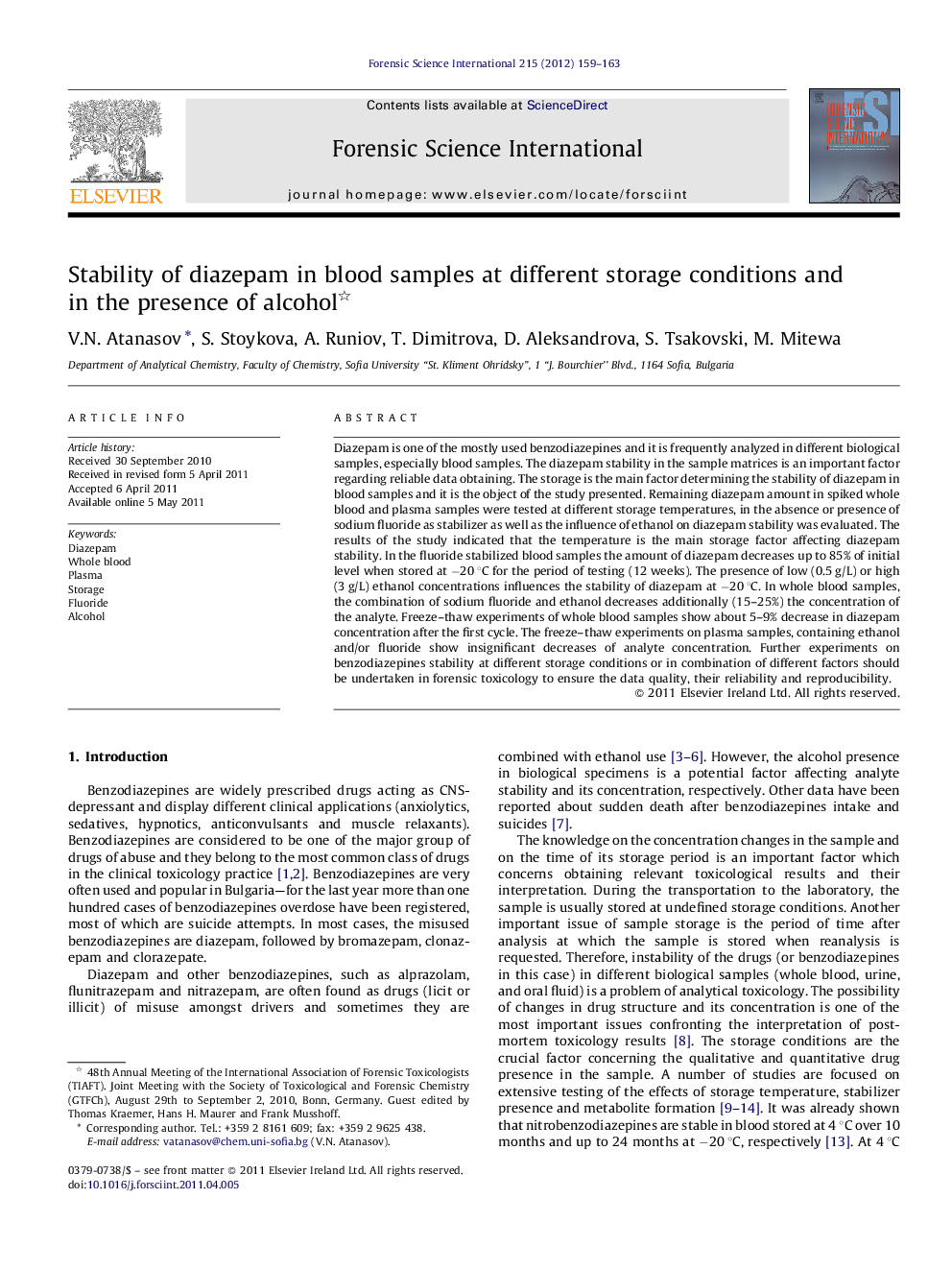| Article ID | Journal | Published Year | Pages | File Type |
|---|---|---|---|---|
| 96444 | Forensic Science International | 2012 | 5 Pages |
Diazepam is one of the mostly used benzodiazepines and it is frequently analyzed in different biological samples, especially blood samples. The diazepam stability in the sample matrices is an important factor regarding reliable data obtaining. The storage is the main factor determining the stability of diazepam in blood samples and it is the object of the study presented. Remaining diazepam amount in spiked whole blood and plasma samples were tested at different storage temperatures, in the absence or presence of sodium fluoride as stabilizer as well as the influence of ethanol on diazepam stability was evaluated. The results of the study indicated that the temperature is the main storage factor affecting diazepam stability. In the fluoride stabilized blood samples the amount of diazepam decreases up to 85% of initial level when stored at −20 °C for the period of testing (12 weeks). The presence of low (0.5 g/L) or high (3 g/L) ethanol concentrations influences the stability of diazepam at −20 °C. In whole blood samples, the combination of sodium fluoride and ethanol decreases additionally (15–25%) the concentration of the analyte. Freeze–thaw experiments of whole blood samples show about 5–9% decrease in diazepam concentration after the first cycle. The freeze–thaw experiments on plasma samples, containing ethanol and/or fluoride show insignificant decreases of analyte concentration. Further experiments on benzodiazepines stability at different storage conditions or in combination of different factors should be undertaken in forensic toxicology to ensure the data quality, their reliability and reproducibility.
